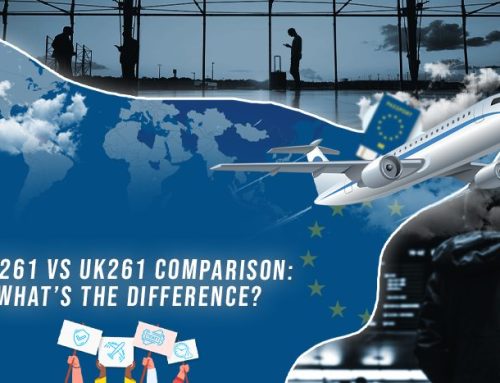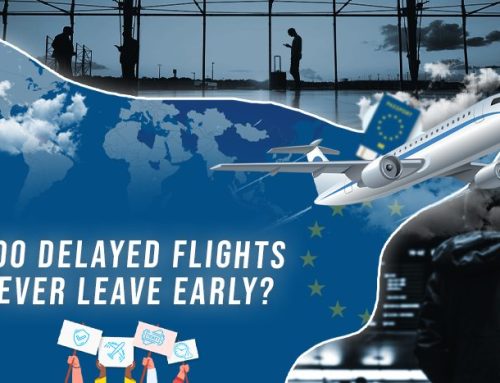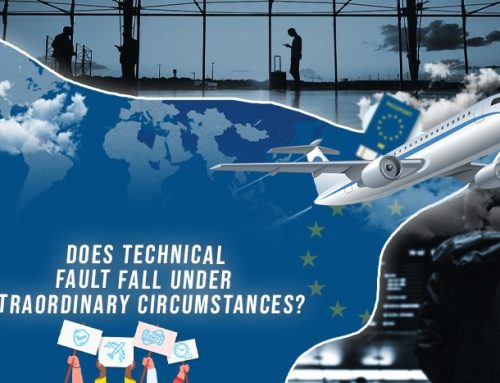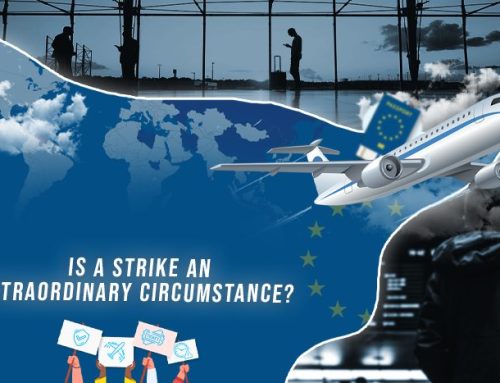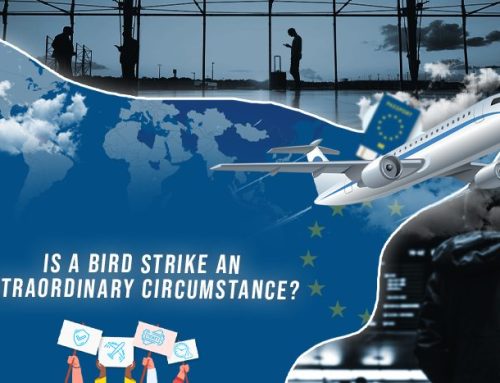Flight disruptions can cause a ripple effect, not just in personal plans but in airports across the world. That’s why EC 261 is in place. It holds airlines accountable for avoidable delays and cancellations, making them pay out when they are at fault. But what if they aren’t at fault? Here’s everything you need to know about extraordinary circumstances and if an airline has to prove them.
Key Takeaways
- Airlines are required to prove that extraordinary circumstances beyond their control caused flight disruptions. They can’t simply claim it without evidence, emphasizing the importance of accountability.
- Passengers also bear responsibility in the compensation process. They must provide accurate documentation and evidence to support their claims, as incomplete or inaccurate information can lead to claim denials.
- Flight compensation companies can be valuable allies for passengers. They possess in-depth knowledge of the law and can assist with claims, often on a no-win, no-fee basis, increasing the likelihood of receiving compensation.
- EC 261 covers various flight issues, such as delays, cancellations, and denied boarding, with compensation amounts based on factors like flight distance and destination. Passengers should be aware of their eligibility criteria.
- Rejected claims don’t have to be the end of the road. Passengers can file appeals or seek assistance from compensation experts, highlighting the importance of persistence when pursuing compensation for flight disruptions.
What are Extraordinary Circumstances?
Extraordinary circumstances are anything that can disrupt a flight that is outside of the airline’s control. This can include but is not limited to, the following.
- Political instability and security risks that could put flights and passengers in harm’s way.
- Severe and unsafe weather conditions, including natural disasters, blizzards, ice storms, hurricanes, tornados, and more.
- Airport employee strikes, which is most typically air traffic control.
- Air traffic control restrictions, including when runways are shut down or other airport issues that impact flight safety on the ground or in the air.
Essentially, in order for an issue to qualify under EC 261, it must be within the airline’s direct control. If it is not, it qualifies as an extraordinary circumstance.
Do Airlines Need to Prove Extraordinary Circumstances?
The burden of proof is on the airline to prove that extraordinary circumstances were at play when the airline faces flight cancellations or delays. Otherwise, an airline simply would say it was extraordinary and refuse to pay out!
However, airlines don’t like to lose money, so the passenger must also provide documentation when they submit a claim. They have to prove they also were not at fault for the flight issue. When they submit their documentation, if it is incomplete, inaccurate, or has other issues, the airline can deny the claim – even if they are at fault.
Passengers are able to appeal the claim and resubmit. However, this can be a lengthy process. Some passengers opt to partner with flight compensation companies. These are experts in the field who know the law inside and out. They are prepared to submit the claim on your behalf, even taking it to court if needed.
Flight compensation companies will often only get paid if you win, and they take a percentage of your fee. This compensation is on top of the rescheduled or refunded flight, so many opt to go this route as they are not losing money.
Ultimately, airlines can’t just say the circumstances are extraordinary. They do need to prove it. However, passengers also need to make sure their documentation and claims are in order so it isn’t rejected during the review process.
What Is Covered Under EC 261?
If extraordinary circumstances like weather are not covered under EC 261, what is covered that could get you compensation? Scheduling issues, staffing concerns, airline strikes, technical issues, and more all could cause an airline to delay or cancel its flights. In these cases, you can claim compensation as long as your issue meets the following criteria.
- Your flight was delayed more than two hours.
- Your flight was canceled less than 14 days prior to departure.
- You were involuntarily denied boarding due to overbooking.
The amount you will receive will depend on the circumstances of your flight, including the length, where it was going, and even where your airline operates. Typically, you should receive the following.
- Flights 932 miles or less: £230
- Flights more than 932 within the EU: £360
- Flights between 932 and 2175 miles not within the EU: £360
- Flights more than 2175 miles: £540
While the airline is required to compensate you when they are at fault for the flight issue, they will not do so unless you file a claim with them.
How To File an EC 261 Claim
If you believe that you are eligible for compensation under EC 261, you will need to file directly with your airline. Gather all your documentation together prior to contacting them. This can include your booking confirmation and any communication from the airline regarding your original flight and the flight issue.
Once you have everything together, you can contact their customer service team. Often, airlines will have a form on their website that you can use to submit your claim and documentation. Once it is submitted, you will wait for the decision to be made. You can log in to check the status of your claim, but it likely won’t move until they make a decision. You will be notified by email once a decision is made.
If your claim is accepted, you are entitled to receive your compensation in cash if you want it. Otherwise, they may offer you travel credits or vouchers. If you want a cash refund, they will often send a secure link for you to provide your banking information or send a check in the mail.
My Claim Was Rejected
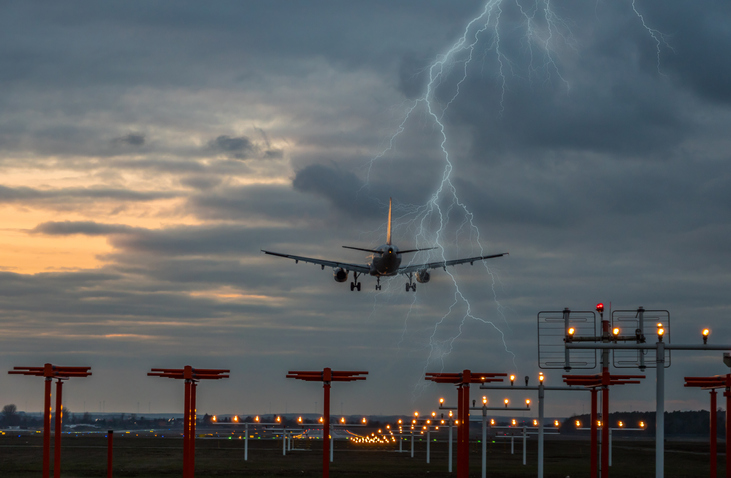
Not all claims are accepted, so you may need to file an appeal with new documentation or partner with a flight compensation company. The first decision does not have to be the final decision, so don’t lose hope.
While airlines should pay out under EC 261, they don’t always want to because that means they are losing money. Many will deny a claim on a technicality, so it’s important that your documentation and claim are complete when you submit it.
Flight compensation companies can help you get the compensation you deserve because they are well-versed in the law. While they do charge a fee for the service, they will do all the work to ensure you get compensated if you are eligible.
Conclusion
Airlines only need to compensate passengers if they are responsible for the issue that caused the flight disruption. If there are extraordinary circumstances, they do need to prove that they apply. However, the passengers also need to prove that they are not at fault for the issue and provide sufficient documentation that the airline is. As a result, passengers and airlines share the burden of proof, and you will not get compensated unless the airline was at fault.
Frequently Asked Questions
-
What is EC 261, and who does it apply to?
EC 261 is a regulation that applies to passengers departing from or arriving at EU airports. It covers flight delays, cancellations, and denied boarding.
-
What are extraordinary circumstances, and how do they affect my compensation claim?
Extraordinary circumstances are events beyond the airline’s control, such as extreme weather or political unrest. They can exempt airlines from compensation obligations. Your claim may be denied if such circumstances are proven.
-
Do airlines have to prove extraordinary circumstances, or is it the passenger’s responsibility?
Airlines bear the burden of proof to demonstrate that extraordinary circumstances caused the disruption. Passengers are responsible for providing documentation and evidence supporting their claims.
-
What if my compensation claim is rejected?
If your claim is rejected, you have options. You can file an appeal with additional documentation or seek assistance from a flight compensation company. The initial rejection doesn’t have to be the final decision.
-
How much compensation am I entitled to under EC 261?
Compensation amounts vary based on factors like the length of your flight and the reason for the disruption. Generally, compensation can range from £230 to £540 per passenger.
-
When should I file an EC 261 claim, and how do I do it?
You should file a claim as soon as possible after experiencing a qualifying disruption. Gather all relevant documentation, then contact your airline’s customer service or use their online claim submission form.
-
Can I receive compensation in cash, or will the airline offer travel credits?
In most cases, you have the option to receive compensation in cash if you prefer. Airlines may also offer travel credits or vouchers as an alternative.
-
Is it worth partnering with a flight compensation company?
Flight compensation companies can be beneficial, especially if your claim is complex or has been rejected. They are experts in navigating the process and often work on a no-win, no-fee basis, ensuring you only pay if you receive compensation.
-
What if my flight disruption occurred outside the EU? Am I still covered by EC 261?
EC 261 applies to flights departing from an EU airport or arriving at an EU airport on an EU airline. If your flight meets these criteria, you may still be eligible for compensation.
-
How long does the compensation process typically take, and how can I check the status of my claim?
The compensation process can vary in duration, but airlines should inform you of their decision via email. You can often check the status of your claim by logging into the airline’s website.



